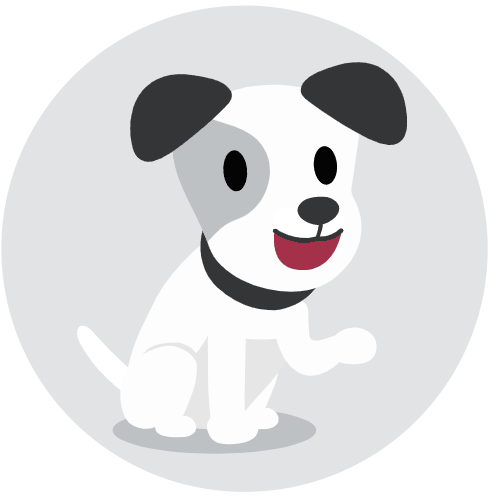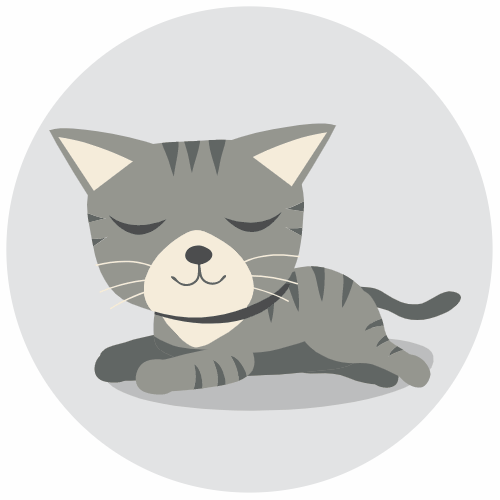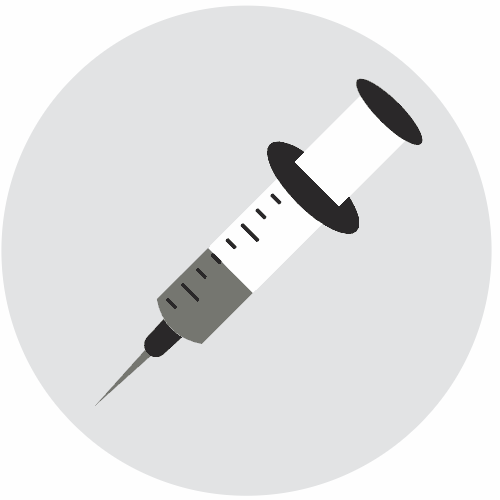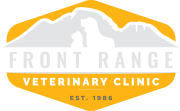If you’ve recently added a puppy or kitten to the family,
congratulations!
Owning a pet can be an exciting, yet overwhelming time and our team at Front Range Veterinary Clinic is here to help ensure your new furry friend is set up for success! Because of this, we have designed our puppy and kitten care to consist of four exams which are three weeks apart. Your veterinarian may provide a more specific recommendation depending on your pet’s age and health history.
What to Expect for Your Pet’s First Exams
During your pet’s first series of exams at Front Range Veterinary Clinic, we will perform a physical exam to assess their health and administer the necessary kitten and puppy shots to ensure they start off on the right paw. In addition, bringing your new pet into our animal hospital will help establish a routine and potentially make for a great socialization opportunity!
Exam One
The first exam typically occurs when your puppy or kitten is about 8 weeks old. Here is what to expect during your puppy or kitten’s first exam:
Kittens:
- Wellness exam
- FVRCP (Feline Viral Rhinotrachetitis, Calici virus, Panleukopenia) #1
- Deworming #1
Puppies:
- Wellness exam
- Dist/Hep/Lept/Para/Parvo Booster #1
- Deworming #1
- Biohazard waste
- 1 month supply of flea & tick prevention
Exam Two
Your puppy or kitten’s second exam should take place about three weeks later when they are getting close to reaching 12 weeks of age to allow our team to assess your pet’s growth. The second exam includes:
Kittens:
- Booster exam
- FVRCP (Feline Viral Rhinotrachetitis, Calici virus, Panleukopenia) Booster #2
- Deworming #2
Puppies:
- Booster exam
- Dist/Hep/Lept/Para/Parvo Booster #2
- Dewormer #2
- Bordetella
- Biohazard waste
Exam Three
This exam should happen when your pet is 12 weeks old so additional vaccinations can be administered. The third exam involves:
Kittens:
- FVRCP (Feline Viral Rhinotrachetitis, Calici virus, Panleukopenia) Booster #3
- FeLV (Feline Leukemia Virus)
- Rabies #1
Puppies:
- Booster exam
- Dist/Hep/Para/Parvo booster #3
- Dewormer #3
- Lyme vaccine #1
- Biohazard waste
Exam Four
The final kitten and puppy care exam should occur when your pet is between 14 to 16 weeks old. Your veterinarian will once again evaluate their growth and complete their initial round of vaccinations. This is also a great time to discuss any questions you may have about your pet’s care as an adult dog or cat. At the fourth and final exam, we will perform the following:
Kittens:
- FVRCP (Feline Viral Rhinotrachetitis, Calici virus, Panleukopenia) #4
- FeLV (Feline Leukemia Virus) Booster #2
- Rabies Booster #2
Puppies:
- Booster exam
- Dist/Hep/Para/Parvo Booster #4
- Lyme vaccine #2
- Rabies vaccine
- Fecal O&P + Giardia test
- Biohazard waste

Why Should I Spay or Neuter My Pet?
All dogs and cats should be spayed or neutered, and our team can help determine when is most beneficial to your pet. Spay/neuter surgery provides your pet with various health and behavioral benefits and can even help save the lives of other animals!
HOW DO I SET A POTTY TRAINING SCHEDULE?
- First thing in the morning
- Last thing at night
- After spending time in a crate
- Upon waking up from a nap
- After eating or drinking
- Time between potty brakes
should be no more than 2-4 hours
HOW DO I CRATE TRAIN MY PUPPY?
- Dogs like clean “home” areas and are less likely to have accidents
- Place crate near exterior door for quick relief
- The crate should be big enough for your puppy to stand up, turn around, and lay down
WHEN SHOULD I REINFORCE GOOD BEHAVIOR?
- Don’t scold your puppy for having an accident
- Praise them for doing the right thing
- Reward them with treats, pats, and attention
How do I get my puppy to stop bad behavior?
WHAT CAN MY PUPPY CHEW ON?
- Chewing is a calming mechanism for puppies
- Keep chewing toys around the house; when they start to chew on toys instead of household objects, give them praise
HOW DO I STOP MY PUPPY FROM BARKING?
- Scolding your puppy when they bark can make it worse; instead, ignore barking and praise quiet
- Training your dog to sit helps them fight impulsive barking when they want something
HOW DO I STOP MY PUPPY FROM BEGGING AT THE TABLE?
- Feed them first before you eat
- Create a cozy “go-to” spot near the table where they can be comfortable
- Praise them with treats when they don’t beg
How do I feed my puppy?
HOW OFTEN DO I FEED MY PUPPY?
- 6-12 weeks: 4x a day
- 3-6 months: 3x a day
- 6-12 months: 2x a day
- After a year: 2 half portions a day
- Watch your puppy to gauge if they are eating healthy
WHAT FOOD SHOULD I FEED MY PUPPY?
- Look for AAFCO guidelines
- Look for age and health specific formulas
- Ask your vet for tailored recommendations
WHAT ARE HARMFUL FOODS FOR PUPPIES?
Dairy, chocolate, grapes, and sugary foods, snacks, or desserts
WHAT THINGS SHOULD I BUY FOR A KITTEN?
- Scratch posts (helps preserve furniture!)
- Litter boxes, cat carriers, and food and water bowls
- Stain and odor remover
WHAT SHOULD I MOVE OUT OF THE WAY?
- Toxic plants
- Cleaners and sprays
- Any dog food that might be in the house
HOW CAN MY CAT BE COMFORTABLE?
- Bed and blanket
- Small, cozy space
- Grooming supplies
- Pheromone products
How should I play with my kitten?
HOW DO I PLAY SAFELY WITH MY KITTEN?
- Use balls, jingles, anything on a string, and cotton chew toys
- Avoid “play” with your hands to avoid injury when full grown
WHAT ARE THE BENEFITS OF PLAYING WITH YOUR KITTEN?
- Strengthens your bond with your kitten
- Allows them to release energy that could lead to damage
- Builds trust and comfort for them within a new home
HOW OFTEN SHOULD I PLAY WITH MY KITTEN?
- 20+ minutes of play per day
- Set aside at least two times a day preferably early in the morning and late at night
HOW DO I FEED A KITTEN?
HOW OFTEN SHOULD I FEED MY KITTEN?
- Dry food only: leave available at all times
- Wet food only: feed at least four times a day
- Combo: feed wet food twice a day and leave dry food available
WHAT SHOULD I FEED MY KITTEN?
- Look for AAFCO guidelines
- Look for age and health specific formulas
- Ask your vet for tailored recommendations
WHAT ARE HARMFUL FOODS FOR KITTENS?
- Raw meats, eggs, raw fish
- Grapes, chocolate, and dairy





